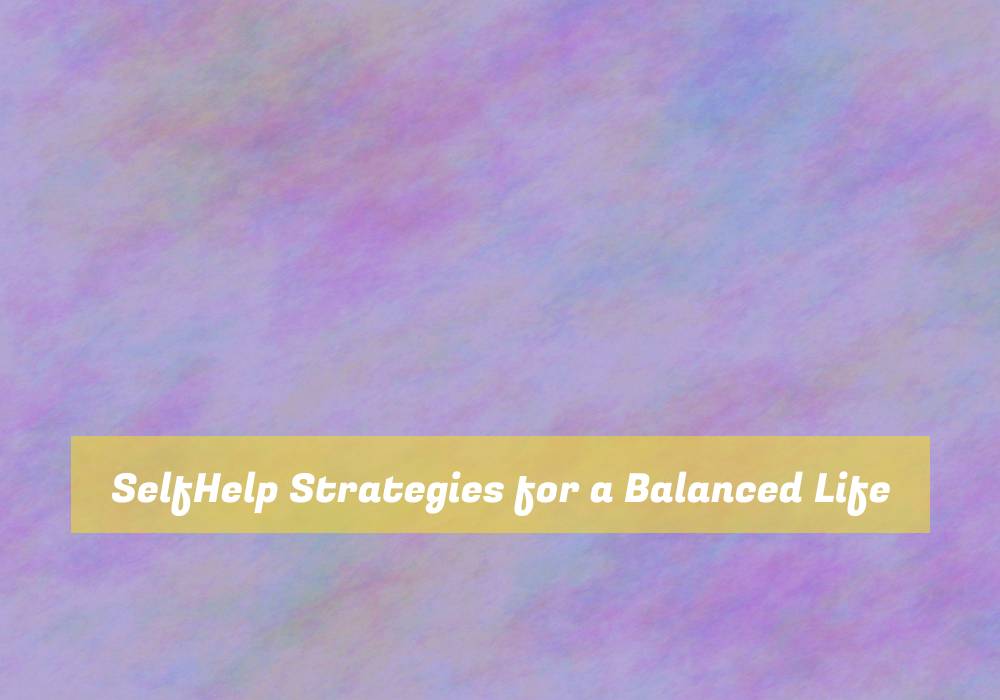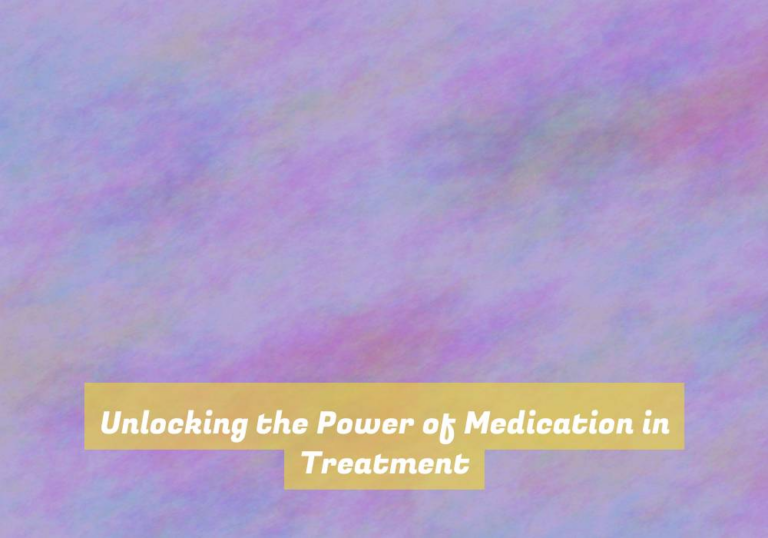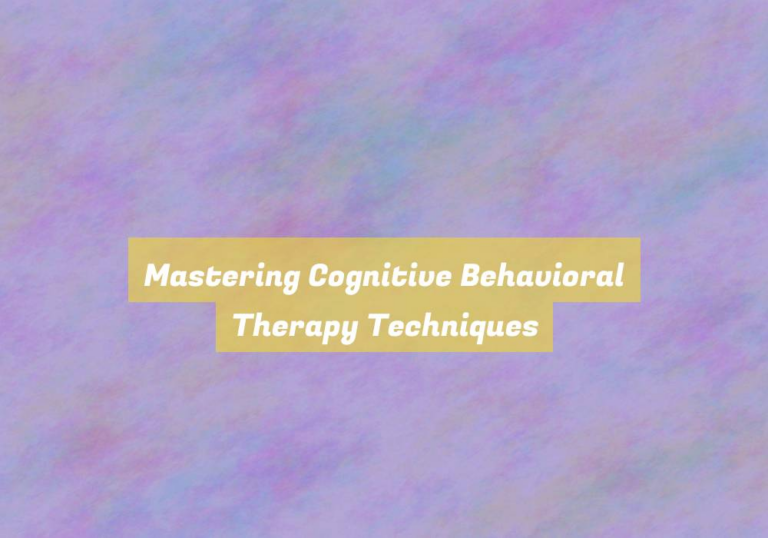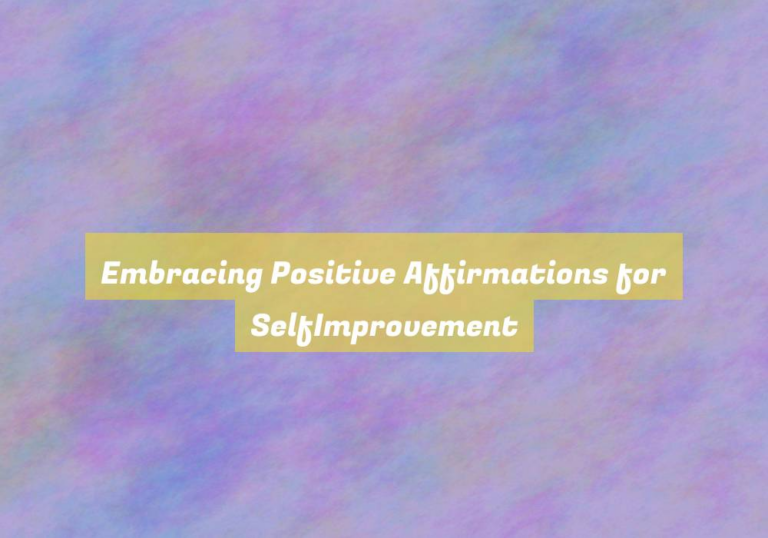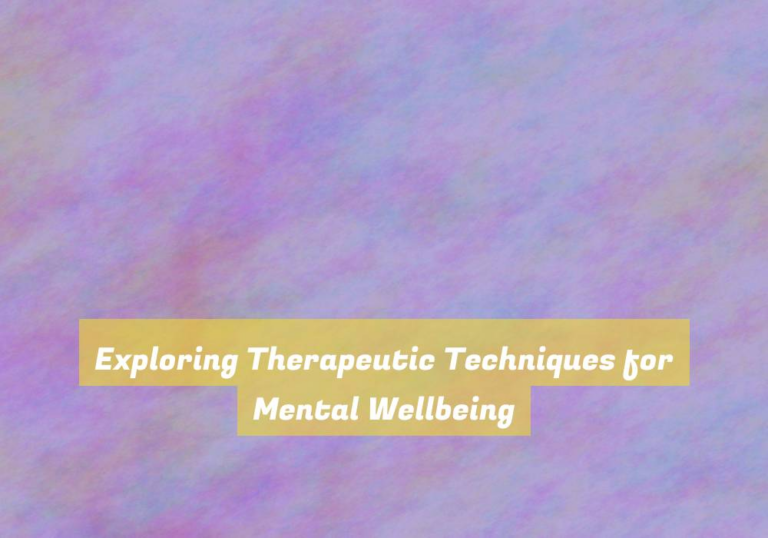SelfHelp Strategies for a Balanced Life
Are you constantly feeling overwhelmed and struggling to find a sense of balance in your life?
ThereG??s no denying that in todayG??s fast-paced world, achieving a balanced life can seem like an elusive goal. However, what if you could implement simple self-help strategies that could make a significant difference in your overall well-being?
These strategies are not just about managing time, but they also encompass setting boundaries for self-care, managing stress and anxiety, cultivating healthy relationships, and practicing mindfulness and balance.
By incorporating these strategies into your daily routine, you might find yourself on the path to a more balanced and fulfilling life.
Setting Boundaries for Self-Care
Setting clear boundaries for your own self-care is essential for maintaining a healthy and balanced life. ItG??s important to prioritize your well-being by learning to say no when you feel overwhelmed. By setting limits on your time and energy, you can avoid burnout and maintain a better work-life balance. ItG??s okay to decline additional responsibilities if you already have enough on your plate.
Additionally, establishing boundaries in your relationships is crucial. Communicate your needs to your friends and family, and donG??t be afraid to express when you need some alone time. This will help you avoid feelings of resentment and ensure that your relationships are mutually respectful and supportive.
Setting boundaries also means recognizing when to take a break. ItG??s okay to disconnect from work or social obligations to focus on your own relaxation and rejuvenation. Whether itG??s a digital detox or a day off, giving yourself permission to rest is vital for your mental and physical well-being.
Managing Stress and Anxiety
To effectively manage stress and anxiety, itG??s important to develop healthy coping mechanisms and create a supportive environment for yourself. One of the most effective coping strategies is practicing mindfulness and deep breathing exercises. When you feel overwhelmed, take a moment to focus on your breath, inhaling deeply and exhaling slowly. This simple practice can help calm your mind and reduce stress levels.
Additionally, itG??s crucial to identify the sources of your stress and anxiety. Keep a journal to track your triggers and emotional responses. By recognizing these patterns, you can develop a plan to address them proactively. ItG??s also important to prioritize self-care. Make time for activities that bring you joy and relaxation, whether itG??s reading a book, going for a walk, or engaging in a hobby.
Building a strong support system is equally vital. Surround yourself with positive and understanding individuals who can offer encouragement and empathy. DonG??t hesitate to seek professional help if you find it challenging to manage stress and anxiety on your own. Remember, itG??s okay to ask for support when you need it.
Cultivating Healthy Relationships
Cultivating healthy relationships requires genuine communication and mutual respect as foundational pillars for fostering meaningful connections. ItG??s essential to actively listen to your partner, friends, and family members. Show empathy and understanding by acknowledging their feelings and experiences. Express your own thoughts and emotions openly, creating a safe space for honest dialogue. Be attentive to non-verbal cues, as they often convey unspoken sentiments.
Building trust is crucial in any relationship. Be reliable and consistent in your words and actions to establish a strong foundation of trust. Respect each otherG??s boundaries and individuality. Allow room for personal growth and support each otherG??s aspirations.
Conflict is inevitable, but itG??s how you handle it that matters. Approach disagreements with an open mind and a willingness to find common ground. Communicate assertively, without resorting to aggression or passive-aggressiveness.
Remember that healthy relationships are a two-way street, requiring effort and commitment from both parties. By nurturing these qualities, you can cultivate meaningful and fulfilling relationships in your life.
Practicing Mindfulness and Balance
Fostering mindfulness and balance in your life requires intentional awareness and a commitment to prioritizing mental and emotional equilibrium. ItG??s about being present in the current moment, acknowledging your thoughts and feelings without judgment, and finding a sense of inner calm.
Start by incorporating mindfulness practices into your daily routine, such as meditation, deep breathing exercises, or simply taking a few moments to focus on your senses. These practices can help you manage stress, improve your concentration, and cultivate a greater sense of self-awareness.
In addition to mindfulness, finding balance in your life involves setting boundaries and learning to say no when necessary. ItG??s important to prioritize your mental and emotional well-being by not overcommitting yourself and making time for activities that bring you joy and relaxation.
This might involve scheduling regular self-care time, engaging in hobbies, or spending quality time with loved ones. By being mindful of your needs and maintaining a balanced approach to life, you can enhance your overall well-being and resilience in the face of lifeG??s challenges.
Conclusion
In conclusion, by setting boundaries, managing stress, cultivating healthy relationships, and practicing mindfulness, you can achieve a balanced life.
Remember to prioritize self-care and make time for the things that bring you joy and peace. ItG??s okay to say no and take a break when needed.
Keep practicing these strategies and youG??ll find yourself living a more balanced and fulfilling life. YouG??ve got this!

